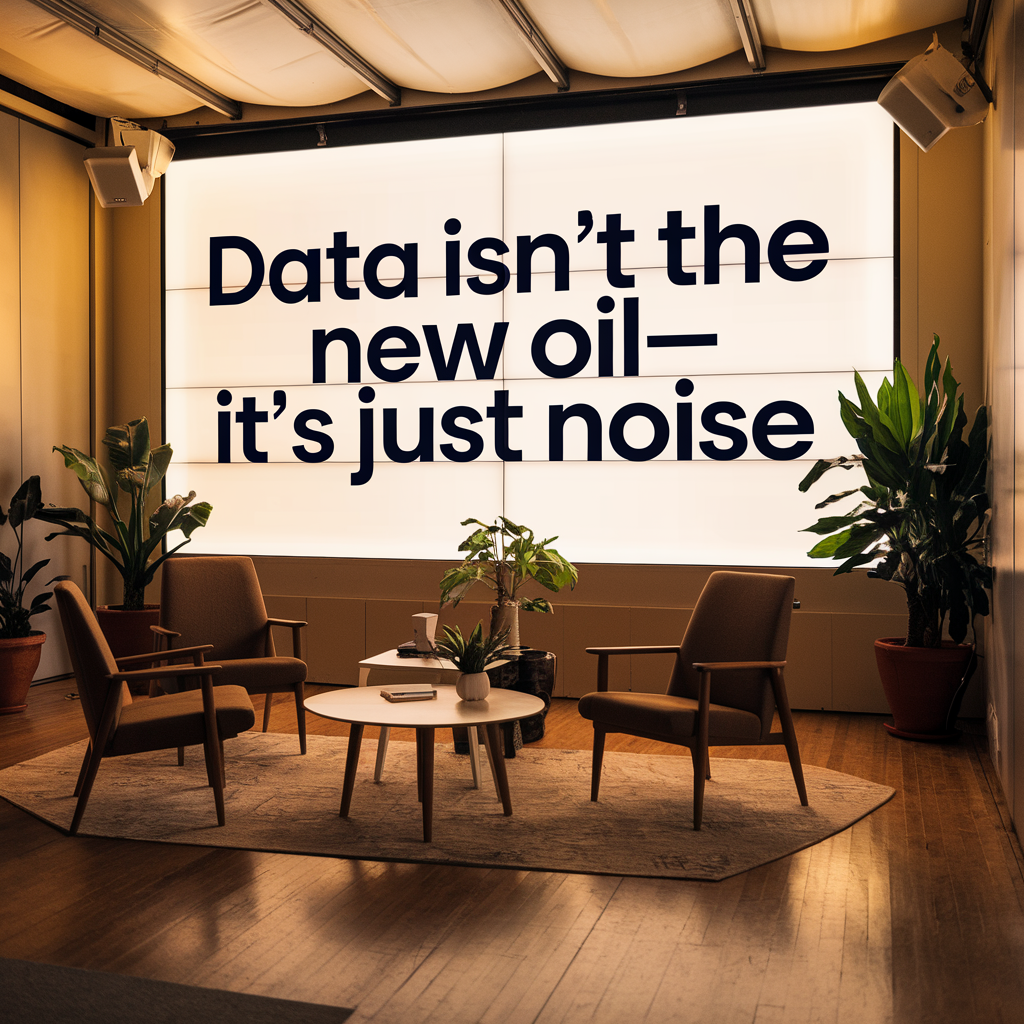For years, the metaphor that "data is the new oil" has driven much of the hype around technology and economics. It's a convenient shorthand for positioning data as an immensely valuable resource—something to be mined, refined, and turned into profit. But this metaphor isn't just flawed—it's garbage. It distracts us from the true source of value in the digital age: our attention.
The Overwhelming Abundance of Data
Data itself has no intrinsic value. It is not a scarce resource. In fact, data is produced at such an overwhelming rate that each year we create more data than all of the previous years combined. This mirrors what Herbert Simon, a pioneer of the attention economy, noted when he said, 'a wealth of information creates a poverty of attention.' As we generate more and more data, our ability to make sense of it becomes increasingly constrained by our limited attention. If oil is valuable because it is finite and costly to extract and refine, data is the opposite. It is near-infinite, multiplying exponentially, and often freely accessible. The sheer abundance of data makes it a commodity in excess, devoid of the scarcity that traditionally defines value.
AI and the Decline of Data Professionals
The argument that data is valuable is also self-serving to the professionals and organizations that use and sell data. These data handlers have built industries based on the collection, organization, and analysis of information. Yet they are increasingly being made obsolete by the emergence of AI, which automates data analysis and organization, rendering traditional data handling roles less critical. The value of data does not lie in the raw information itself but in its capacity to shape decisions, gain insight, and most crucially, to command attention.
Attention: The Real Scarce Resource
The true scarce resource in today's economy isn't data; it's attention. Attention is what advertisers, platforms, and tech giants are all competing for. Tim Wu, in his work Attention Merchants, illustrates how data is utilized primarily to capture and exploit attention for profit. It's not the mere accumulation of data that matters; it's the ability to convert that data into something that can command human attention. It's attention that is finite, intrinsically valuable, and the ultimate goal of data utilization. When companies tout the value of data, they often employ a sleight of hand that conflates data's utility with its intrinsic value. They speak as if the mere possession of large volumes of data inherently equates to wealth or power.
The Sleight of Hand: Data Versus Utility
This rhetoric obfuscates a critical insight: data, in isolation, is just noise. Its utility only emerges through algorithms, narratives, and behavioral influence that can turn noise into something that captures attention and drives action. This obfuscation is deliberate because it masks what is really happening—data is being used as a tool to monopolize our most finite and precious resource: our time and focus.
The Ethical Dimension of Data and Attention
The focus on data as a commodity distracts us from more urgent discussions around the ethical dimensions of data use, the mechanics of surveillance, and the competition for human attention. Instead of glorifying data as the new oil, we should be scrutinizing how it is wielded to manipulate, monetize, and colonize our cognitive space. We need to reframe the conversation—not around the limitless, commodified nature of data, but around the scarcity of attention, which is where real value, and real risk, lies.
The Real Currency of the Digital Age
In this age of information abundance, it's imperative to remember that not all that glitters is valuable. Data is abundant, bordering on infinite. Attention, on the other hand, is scarce, finite, and the real currency of the digital age. Let's not be fooled by the hype around data's supposed intrinsic value. Instead, let's focus on what really matters—how that data is being used to grab hold of our attention and, in turn, shape our lives.


